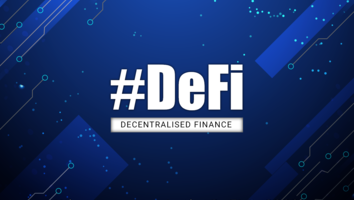In the previous few years, the cryptocurrency market has risen dramatically. Crypto traders are profiting handsomely from their investments, and it appears that this trend will continue for a long time.
For a long time, the cryptocurrency wallet development revolution will continue.
And, to reap the benefits of this transformation, multinational corporations are pouring money into blockchain development. Dealing with cryptocurrencies and bitcoin, on the other hand, is simpler, but people are confused by blockchain wallets.
Since the future of cryptocurrency trading appears promising, now is an excellent time to invest in establishing a crypto wallet for a large audience.
The question now is: how can you create a truly beautiful crypto wallet that people will enjoy? In this blog, we'll go over the elements of a crypto wallet development, including why it's needed, what features it should have, and how to create an amazing crypto wallet.
What is Cryptocurrency?
Cryptocurrency is a type of digital currency that can be used to purchase virtually anything. It is decentralized by design, which means there is no central authority in charge of maintaining or managing the money. The application of blockchain technology in cryptocurrency is what makes it interesting. A blockchain is a decentralized ledger that anybody can see. Blocks are formed by transactions on the blockchain. These blocks connect to create a chain of previous cryptocurrency transactions.
Crypto Wallet Types
Here’s the types of crypto wallets available.
➤ Desktop Wallets
Desktop wallets are the most common and widely used cryptocurrency wallets. They allow users to keep their crypto on their computers. Users must install the wallet just like any other piece of software. These wallets are compatible with all major operating systems, including Mac OS, Windows, and Linux.
➤ Online Wallets
To use these wallets, you'll need a one-of-a-kind key. These wallets are useful for individuals who are unable to use their PC but still wish to check their accounts. The only disadvantage is that they are vulnerable to hacking.
➤ Hardware Wallets
One of the popular crypto wallet developments, it allows the user to store a duplicate of their private key in these wallets. These wallets function similarly to a real safe. They're the best option for individuals who don't actively acquire and trade cryptocurrency.
➤ Paper Wallets
The user's private and public authentication keys are printed on paper wallets. This is the least secure form of wallet accessible. If the user misplaces the paper, they lose access to their cryptocurrency wallet as well.
➤ Mobile Wallet
This wallet is a hybrid of online and desktop wallets. The consumer can access their crypto with a mobile app from anywhere on the planet. Many businesses specialize in the creation of crypto wallets.
How to Create a Cryptocurrency Wallet?
Let's have a look at how to do it and create a crypto app.
- Understand Blockchain and Cryptos
For crypto wallet development, blockchain technology is critical.
If you want to create crypto wallet software, you should first learn about blockchain and cryptocurrencies.
Blockchain is a novel and promising technology that enables the use of digital currency (cryptocurrencies), just like the Internet enables the use of emails. Blockchain is a network of blocks that hold digital information (data), and the chain is the cryptographic principle that connects the data blocks, as the name suggests. The whole point of employing it is to make it possible to securely share sensitive information.
- Use Standard Cryptocurrency Open-source Libraries
The majority of cryptocurrencies are free and open source. As a result, there's no need to recreate the wheel. BitcoinJ SDK and Coinbase SDK, for example, are already available as free libraries and tools.
The Coinbase SDK is a Java library that runs on all platforms. It enables developers to create bitcoin wallets for iOS and Android. Furthermore, this library supports a variety of popular languages, including Python, Java, Ruby, and others.
The BitcoinJ SDK is easy to use and has a lot of tutorials. Furthermore, BitcoinJ is JVM-compatible, allowing it to function with languages such as C++, JavaScript, Ruby, and Python, among others.
- Use APIs
Using APIs for cryptocurrency wallet development is a great way to go. You can effortlessly synchronize your crypto wallet with the blockchain ecosystem when you use a distributed ledger API. Coinbase, Bitcore, and Factom are three of the most popular APIs to pick from.
Your development team can perform the necessary processes in a fraction of the time by using APIs, speeding up the app development process.
- Go Cloud
You must now choose the appropriate cloud platforms for your project. If you're developing a web application, PaaS (Platform-as-a-Service) is an option.
However, if you want to create a crypto wallet app, you'll need to find a BaaS (Blockchain as a Service) provider and incorporate their cloud service into your app. Companies like Amazon, Azure, and Microsoft provide BaaS solutions.
You may design a secure bitcoin wallet software using one of them, depending on your needs and desires.
- Select the Right Technology Stack
Your app's success will be determined by the technology stack you use.
If you want to make a web app, for example, you can utilize Node.js or Angular.js, as well as HTML5 and CSS3. This will aid you in the development of a scalable crypto web application.
You can use either Java or Kotlin to create a native Android app. Swift or Objective-C can be used to create iOS apps. For the right technology stack, simply choose the best cryptocurrency wallet development service provider today!
- Accentuate Security
When creating a bitcoin wallet software, security is crucial. As a result, you should be certain that your cryptocurrency app is secure.
With 2FA — fingerprint, face ID, and hardware authentication — you may add extra protection layers to the crypto wallet software.
The developers must ensure that security upgrades are made regularly. They must swiftly identify and fix any bugs (if any) and other security issues utilising cutting-edge technologies.
- Check Out Your Competitors
It comes as no surprise that you want your cryptocurrency wallet development software to stand out. As a result, keeping an eye on your competitors is critical. Know what they're doing and what technology they've used. You can look over the features to see what special features you can include in your app.
Furthermore, if you want to get a competitive advantage over others, you must be aware of what is going on around you.
- Begin Your App Development
So, when you're ready to begin developing a crypto wallet software, make sure you complete the following:
- Choose all of your app's features.
- Develop the application code and connect it to your database.
- Create a straightforward and user-friendly interface.
- Before releasing your wallet, be sure it has undergone comprehensive testing.
Build A Powerful Crypto Wallet App with W3Villa Technology
A cryptocurrency wallet is required for all cryptocurrency transactions. It will let users store, give, swap, and trade a variety of digital currencies such as Bitcoin, Ripple, and Ether. Get in touch with us if you want to create a crypto wallet development service.



